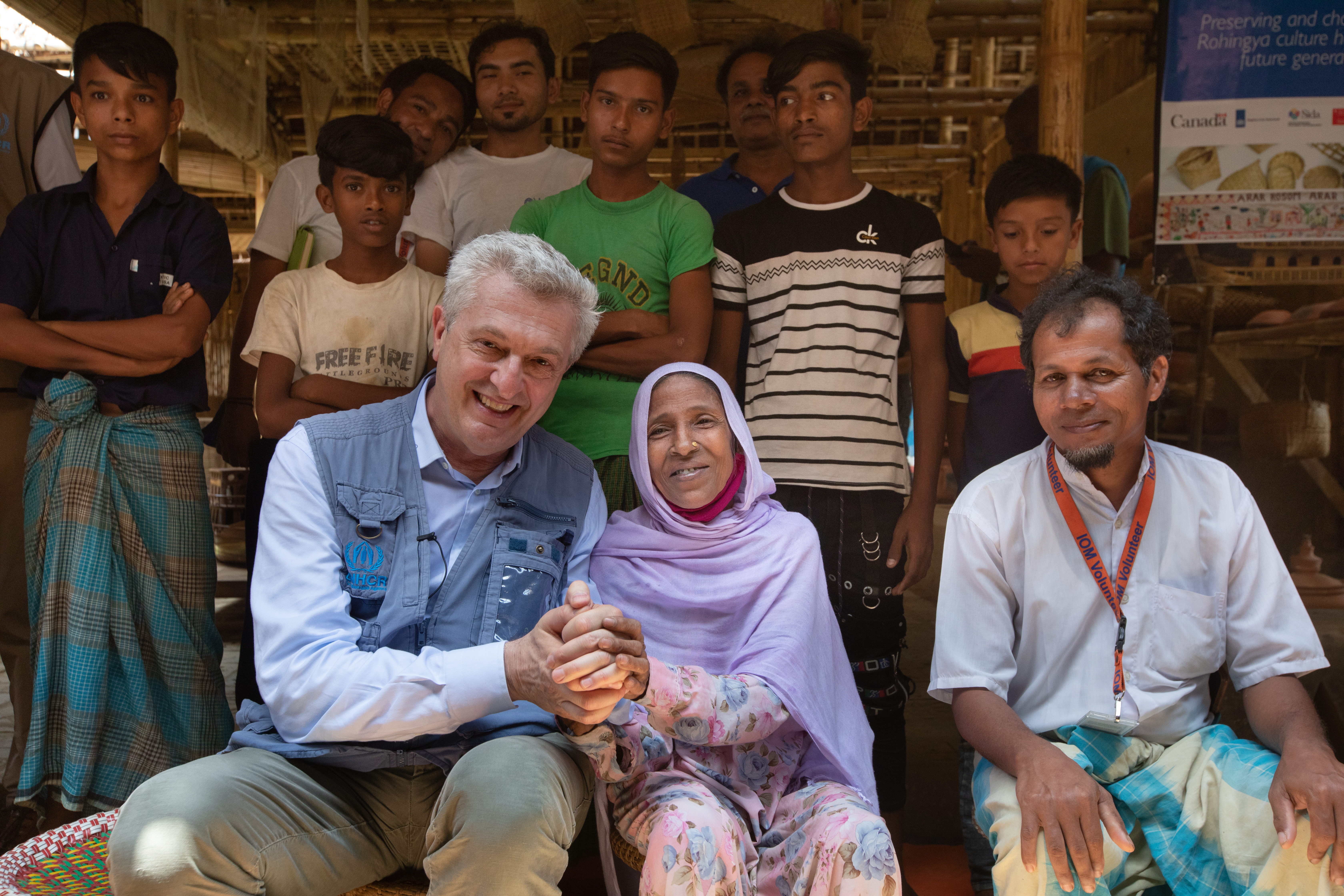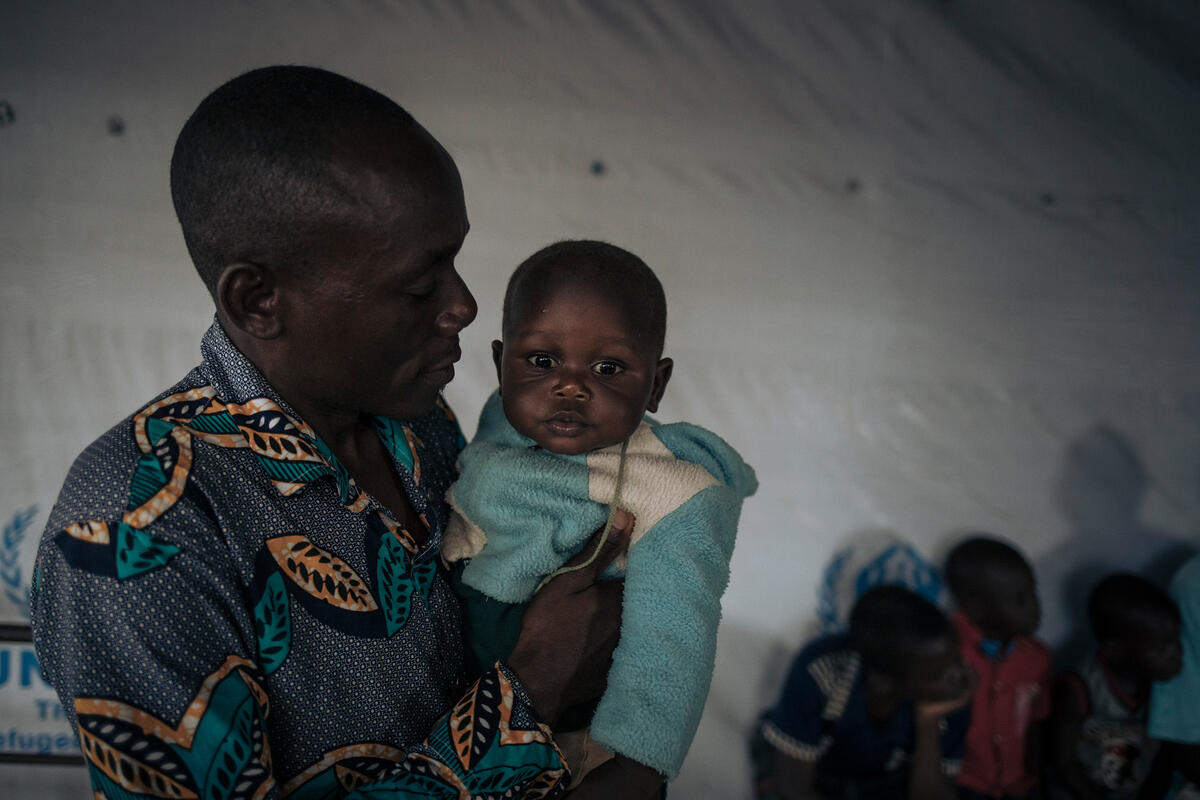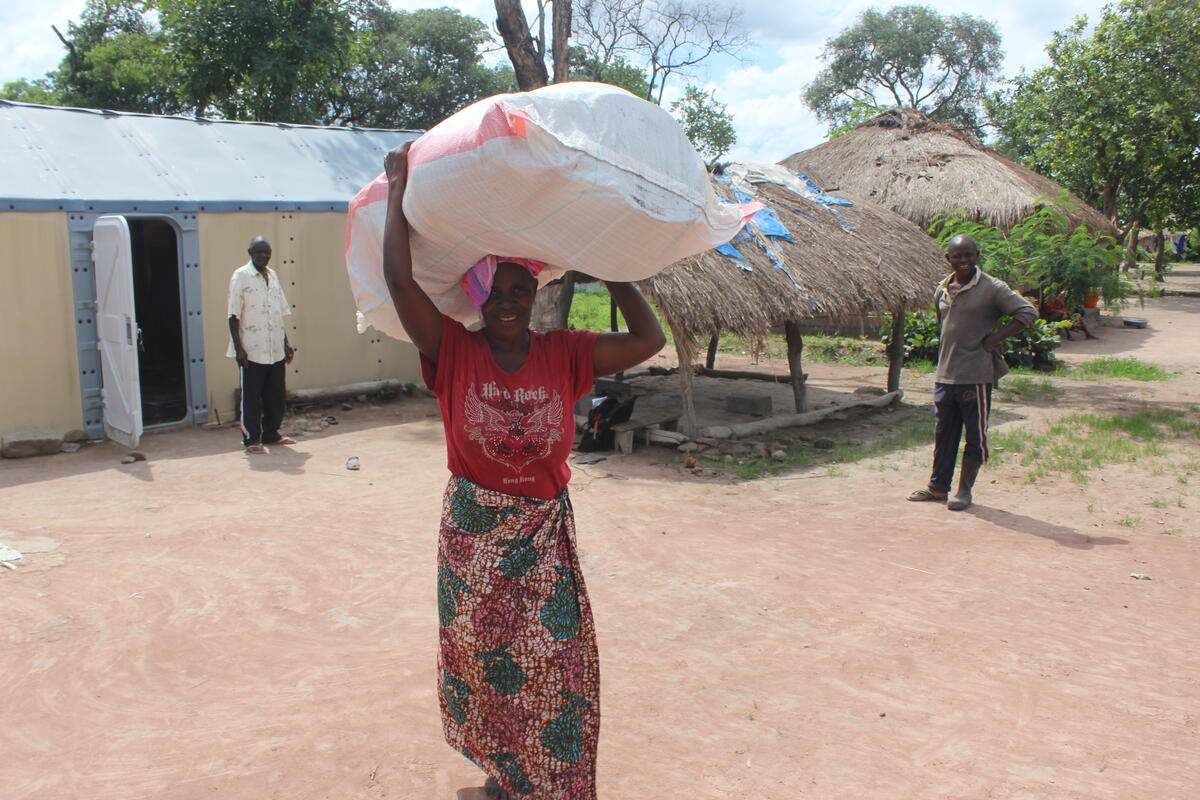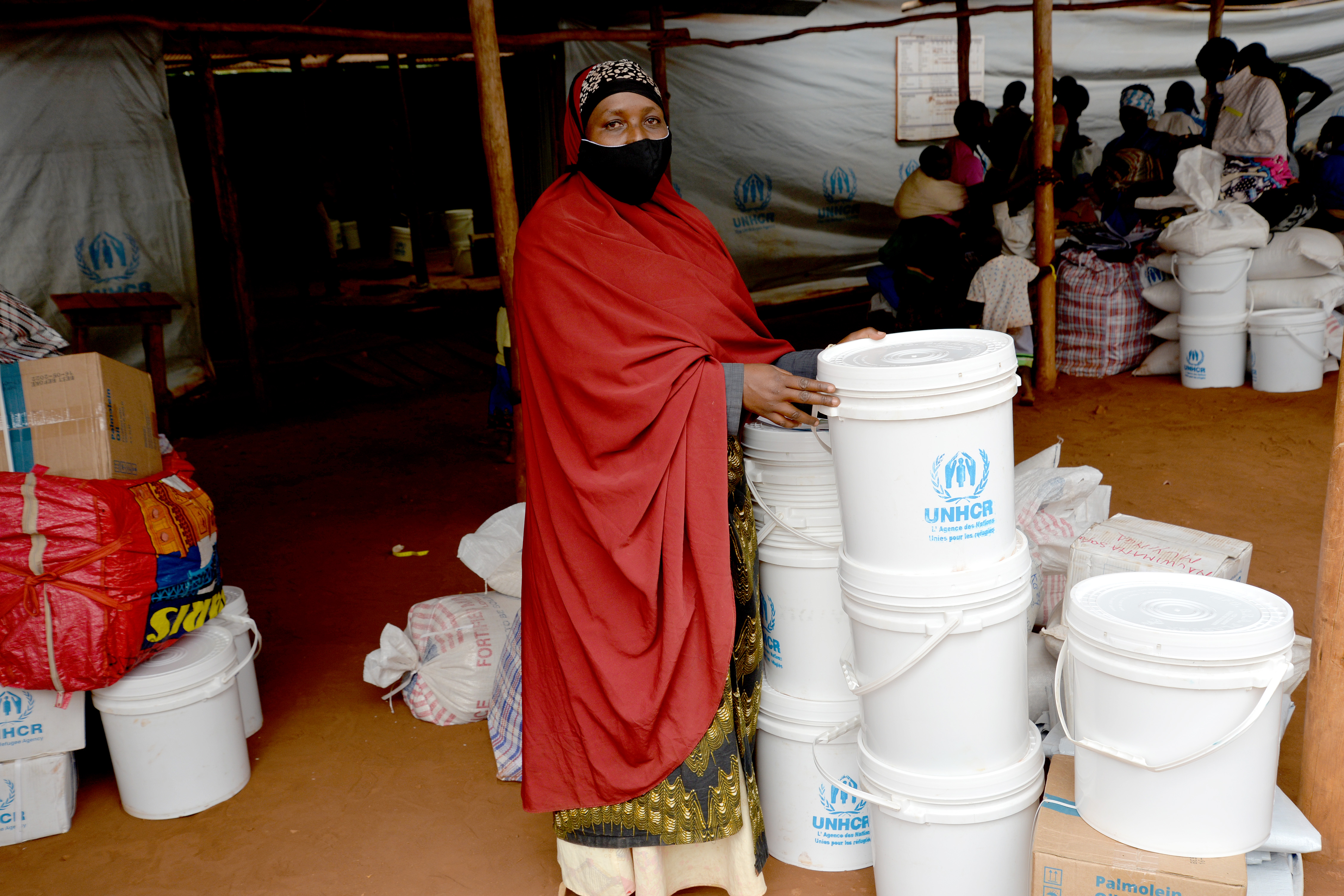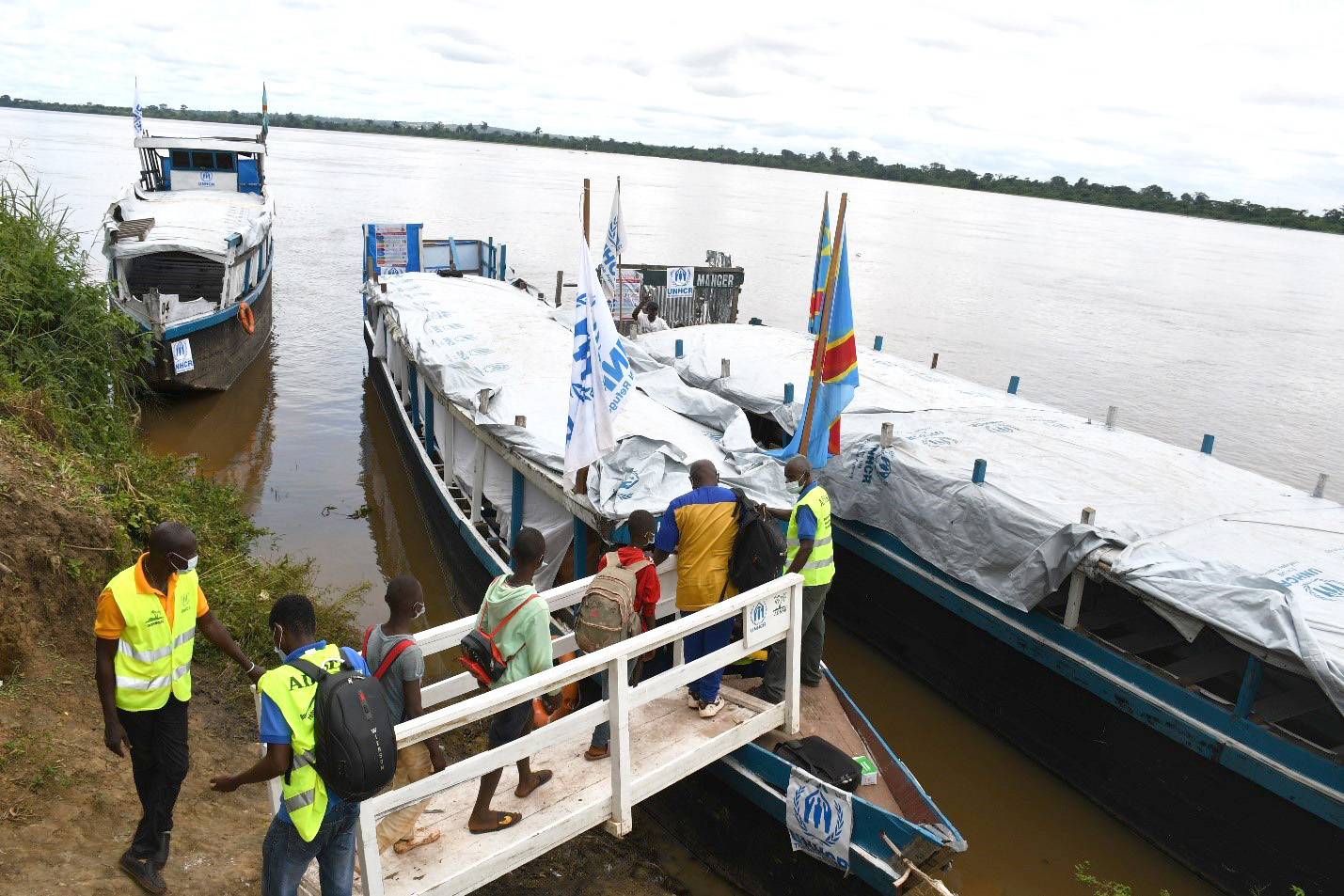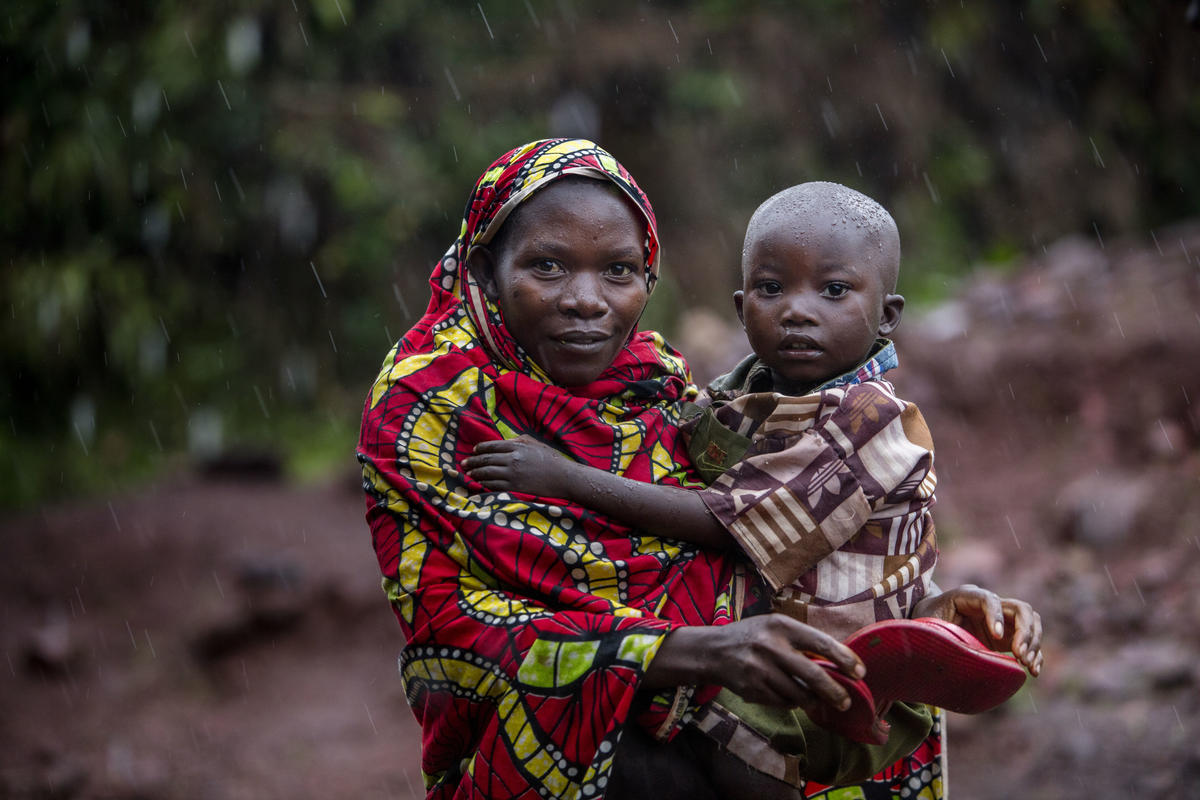UNHCR begins repatriating victims of xenophobic violence
UNHCR begins repatriating victims of xenophobic violence

KRUGERSDORP, South Africa, August 27 (UNHCR) - Earlier this month, the UN refugee agency helped repatriate a first group of refugees who had been displaced by last May's wave of xenophobic violence in South Africa and become unhappy with life in this country. More are likely to follow.
"Between the uncertainty surrounding the closure of the temporary shelters and the inability or reluctance of refugees to reintegrate into local communities, the preferred solution for a growing number of them is to return to their countries of origin," said Pamela Msizi, a UNHCR protection assistant, referring to government plans to close all six temporary shelters housing some 6,000 migrants, refugees and asylum seekers in Gauteng province.
A first group of refugees, comprising 46 Congolese and six Burundians, flew back to their home countries with UNHCR assistance on August 18. Msizi said a second group of 23 Congolese and nine Burundians were being processed for repatriation during the first week of September. Others have applied for repatriation, but exact numbers are not available.
UNHCR is ready to assist those who express interest in voluntary repatriation as long as the areas and countries of origin are deemed safe to return to. Refugees and other displaced foreigners who opt for repatriation are not convinced by government assurances that the situation has stabilized and they are now safe.
Muchipayi Jim Comoda, who fled his native Democratic Republic of the Congo (DRC) seven years ago, said UNHCR's first repatriation operation for victims of the xenophobia had increased his longing to return home. "I am exercising my right to seek voluntary repatriation and have registered my whole family with UNHCR," he added.
"It's better than going back to a community that doesn't want you," reflected Comoda, who fled from his home in Johannesburg's Bezuidenhout Valley and found shelter in Krugersdorp on May 18 after he was roughed up by armed gang members and lost a tooth. It could have been far worse - at least 62 people died in the wave of xenophobia and tens of thousands were displaced.
It was not the first time that Comoda had suffered since arriving with his wife and nine children in South Africa in 2001. He was a qualified pilot with several years experience, but prospective employers would not accept his Congolese qualifications.
"I eventually gave up and started working as a trader and that is what has sustained my family," said Comoda. "These attacks have undone all of that," added the 57-year-old, who returned to Bezuidenhout Valley once the violence died down and found someone living in his house who refused to hand over his belongings.
Frustrated, he now wants to return to his home town of Lubumbashi in the southern DRC province of Katanga, where relative peace has returned after years of civil war. He is not persuaded by the government's assurances that it is safe for displaced foreigners to reintegrate back into South African communities.
"Will the army and the police be there to look after us 24 hours a day?" he asked. "The locals made it clear that they don't want us back and I will not put my family at risk. I may as well do that in the country of my birth."
Comoda's sentiments are echoed by many other displaced refugees. What they witnessed and went through at the hands of some of their South African neighbours is difficult to forget.
But he, and others, were quick to acknowledge the overwhelming support provided by the government and many citizens in their hour of need. "We know that this xenophobic violence was perpetrated by a few people and that the vast majority of South Africans are against it. Unfortunately we cannot rely on the government forever. Life must go on, and - for me - that life is in the DRC."
The UNHCR, while ready to help people like Comoda repatriate, will continue to assist the refugees and asylum seekers who would like to reintegrate into local communities through an assistance programme implemented by its partner, the Jesuit Refugee Service (JRS).
By Pumla Rulashe in Krugersdorp, South Africa



